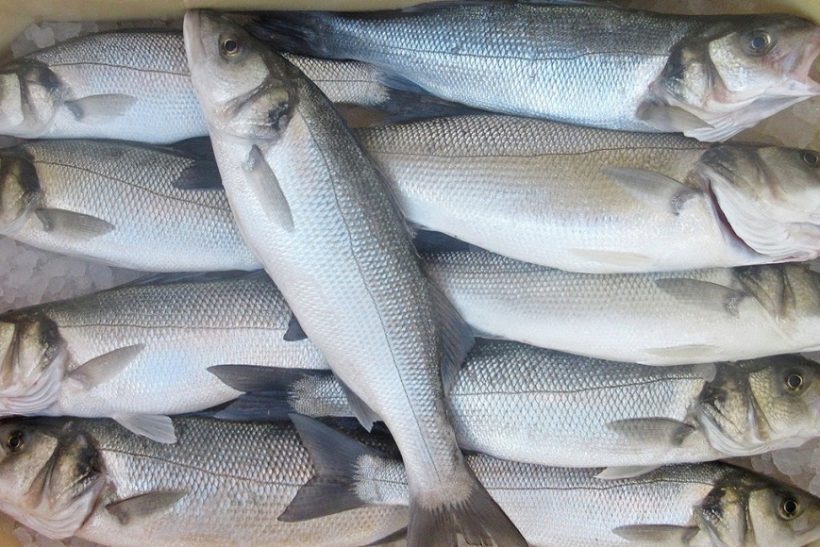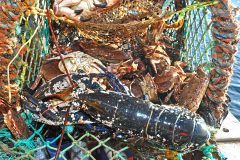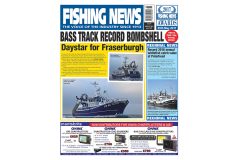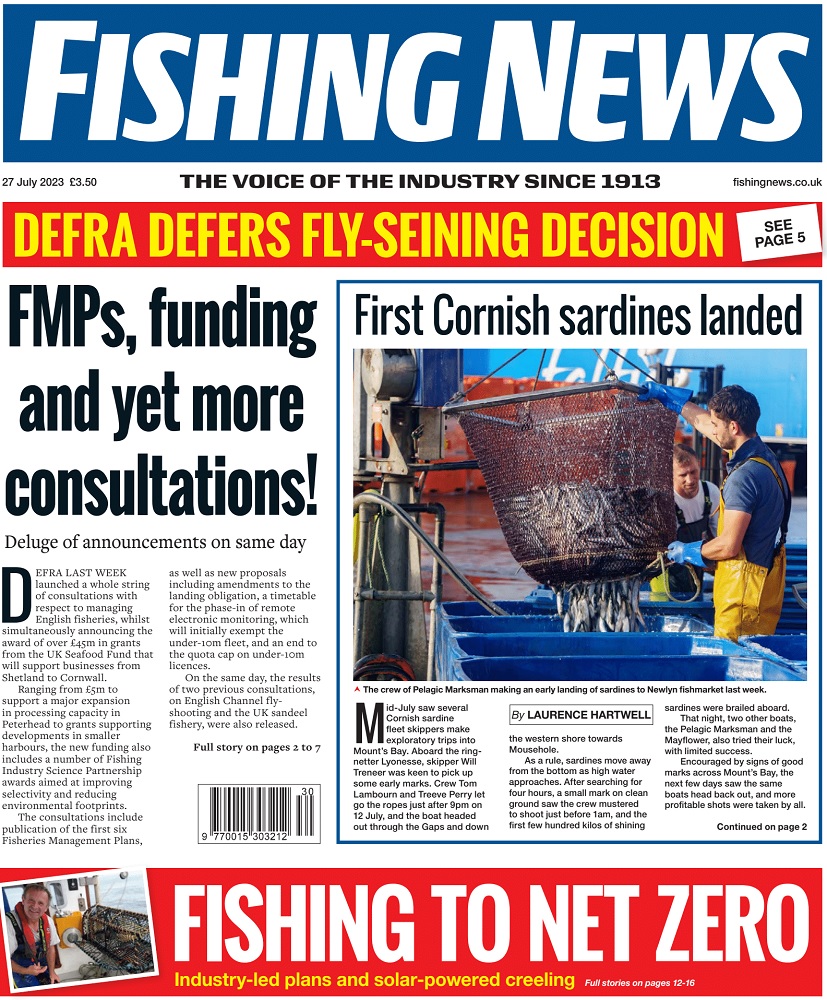There is to be a major clampdown on the bass fishery from 2017 onwards, reports Tim Oliver.
New rules for 2017 agreed at the December Council say bass track records must be linked to boats – not licences – and remains with the vessel if it changes ownership. A track record cannot be transferred from one vessel to another. New vessels without a track record will not be eligible to fish for bass.
The track record period is limited to vessels that have a record of bass landings during the period 1 July 2015 to 30 September 2016.
Fisheries administrations will issue authorisations to owners notifying them which gear they are allowed to use.
An MMO spokesman told Fishing News: “The regulation is clear that only vessels that have landed bass have a track record and are eligible to operate in the bass fishery.
“Council Regulation (EU) 2017/127 specifies that only Union vessels with a track record (from 1 July 2015 to 30 September 2016) are permitted to fish for bass; therefore new vessels which do not have a track record cannot enter the fishery.
“The regulation has imposed restrictive bass measures due to the perilous state of the stock and the need to take significant steps to halt the decline. It is therefore necessary to ensure that the capacity of the fleet does not increase and that the UK takes measures which contribute to a sustainable bass fishery for the future.”
Vessels that do not have an authorisation must discard any bass they catch – but bass will be subject to the demersal landing obligation/discard ban from 2019 onwards when all quota species will be subject to the ban.
Although bass is not a quota species, it is subject to catch limits and therefore the landing obligation applies – it is already subject to the pelagic landing obligation.
The demersal landing obligation is being gradually phased in but does not currently apply to bass in 2017, so bass can be discarded this year. But it will apply to bass in all fisheries no later than 2019, raising fears that it will become a choke species for many vessels.
The new rules have provoked a storm of outrage. The NFFO said there was serious concern over the lack of any provision for any appeal process against any ‘pipeline’ cases, where fishermen who regularly caught bass but did not have a track record for any reason would lose their bass rights.
Chief executive Barrie Deas that where a track record reference period was specified for eligibility to access a fishery, there were always fishermen who had a legitimate claim to the fishery but for various reasons did not meet the requirements. Normally, there was provision for such pipeline cases to be looked at individually, and an appeals process.
He said: “There are always people with financial obligations or are difficult borderline cases that have to be taken into account, and we find it strange there is no provision for that in this case. We will be taking it up with DEFRA and the MMO as a matter of priority.”
He said the restrictions had come without warning, as often happened with the TACs and Quotas regulation, because of the way decisions are taken at the December Council.
He said: “It’s not difficult for details to be inserted at the last minute and only become apparent when the full regulation is published in the Official Journal.
“The way decisions are made in the Council have caused us immense problems over the years – small-eyed ray for example. But this is time-limited now – the December Council will no longer be the forum where decisions are made on TACs after Brexit. They will be made in international negotiations.”
Read more news from Fishing News here.






